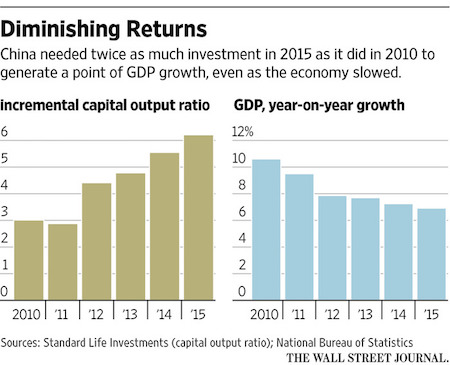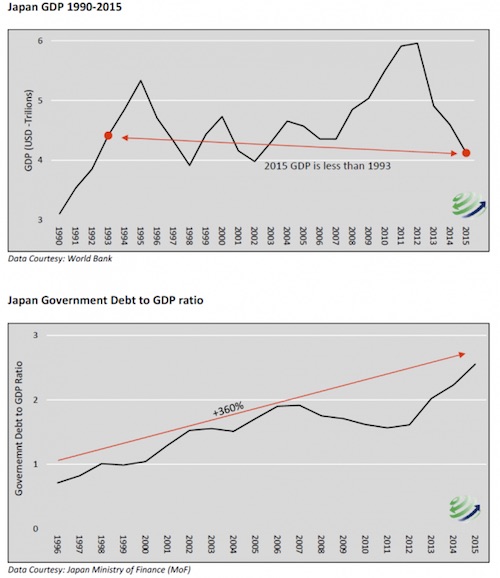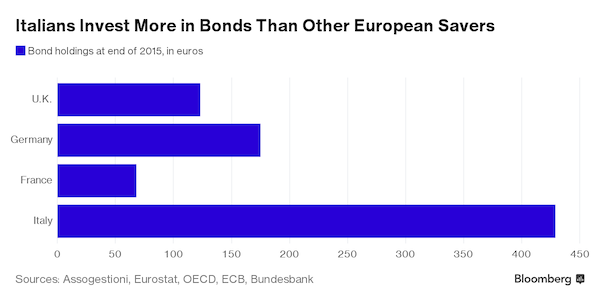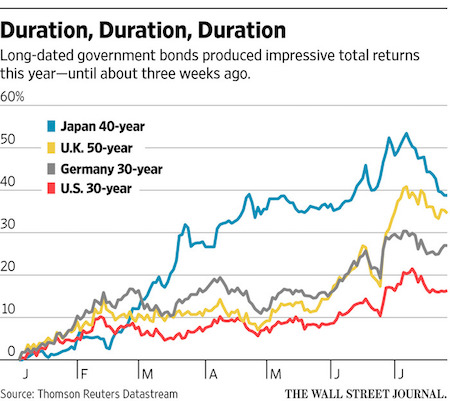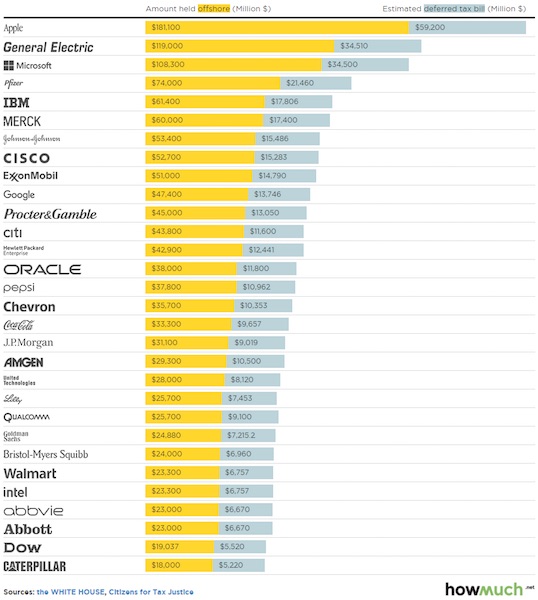
Unknown No Dog Biscuits Today

Clinton says she’s confident the new mails will not change the FBI’s conclusion in July. Thing is, if that were so, they probably wouldn’t have announced the mails on Friday.
• It’s A First: Hillary Wants FBI To Publish Everything About Emails (DM)
The FBI is investigating Weiner’s lewd texts with an underage girl, revealed in September by DailyMail.com. ‘We’ve heard these rumors,’ said Clinton – who sat near Abedin on her campaign on the flight to Des Moines. ‘We don’t know what to believe and I’m sure there will be even more rumors. That’s why it is incumbent upon the FBI to tell us what they’re talking about,’ she said. ‘Because right now your guess is as good as mine and I don’t think that’s good enough.’ [..] Meanwhile, it was also revealed on Friday that Comey reportedly told bureau staffers in separate memo that he broke custom in telling Congress about the reopening of the investigation because of its political sensitivity. In the internal memo obtained by Fox News, Comey said the bureau would not ordinarily communicate with the public about its ongoing investigations, but said he felt he needed to do so as amid the looming election.
He also notes he felt an ‘obligation’ to inform lawmakers about the investigation given he had testified repeatedly that their investigation into Clinton’s email was completed. ‘Of course we don’t ordinarily tell Congress about ongoing investigations, but here I feel an obligation to do so given that I testified repeatedly in recent months that our investigation was completed,’ Comey wrote in the memo. ‘I also think it would be misleading to the American people were we not to supplement the record. ‘At the same time, however, given that we do not know the significance of this newly discovered collection of emails, I don’t want to create a misleading impression. ‘In trying to strike that balance, in a brief letter, and in the middle of an election season, there is significant risk of being misunderstood, but I wanted you to hear directly from me about it.’

The NY Post suggests that NBC suggests that the FBI needs a fresh warrant to study the new batch of emails they suggest is connected to their investigation of Hillary Clinton’s use of a private server, which in turn is linked to possible mishandling of classified informaton. The (1000?!) mails were found on a laptop (and/or phone?) used by both Huma Abedin and Anthony Weiner. The ‘new warrant’ issue may be why Comey says “..the FBI cannot yet assess whether or not this material may be significant..”. They’ve seen things that led to Comey’s letter yesterday that perhaps they had no legal position to investigate. But they’ll get that warrant of course. Question is how long it will take. The Hillary camp can in the meantime try and use the uncertainty to say again and again that they don’t think the new revelations will change the FBI’s position that there was no reason to charge her, but as I suggested late last night (European time), and as Carl Bernstein confirms, for Comey to speak up now means this can only be a bombshell. Which means NOT speaking out now would down the line be seen as more partisan than speaking.
• Bernstein: New Evidence “A Real Bombshell” Or FBI Would Not Reopen Case (RCP)
CARL BERNSTEIN: Well, there’s no question that the e-mails have always been the greatest threat to her candidacy for president, that her conduct in regard to the e-mails is really indefensible and if there was going to be more information that came out, it was the one thing, as I said on the air last night, actually that could really perhaps affect this election. We don’t know what this means yet except that it’s a real bombshell. And it is unthinkable that the Director of the FBI would take this action lightly, that he would put this letter forth to the Congress of the United States saying there is more information out there about classified e-mails and call it to the attention of congress unless it was something requiring serious investigation. So that’s where we are… Is it a certainty that we won’t learn before the election? I’m not sure it’s a certainty we won’t learn before the election.
One thing is, it’s possible that Hillary Clinton might want to on her own initiative talk to the FBI and find out what she can, and if she chooses to let the American people know what she thinks or knows is going on. People need to hear from her… I think if she has information available to her from the FBI or any other source as to her knowledge of what these e-mails might be, hopefully she will let us know what they are and what is under discussion here. Right now we’re all talking in a vacuum but I want to add here that in the last, oh, 36, 48 hours, there has been an undercurrent of kind of speculative discussion among some national security people that something might surface in the next few days about e-mails, and I think the expectation in this chatter – and I took it as just chatter but informed chatter, to some extent – was that it would relate to another round of WikiLeaks e-mails, which our Justice Department people seem to be saying is not the case, but there has been some noise in the national security community the last day or two of this kind of possibility of some kind of revelation.
But this is her achilles heel and we have to remember that it also comes on the – back to the word heel – of the revelations about the Clinton Foundation. So the confluence of all of this is bad for her as it stands now but with some knowledge she might be able to stop, turn things around, and give us some idea of what’s going on in a way we might not otherwise know, and also it’s very possible that some members of congress very quickly are going to get an idea of what these e-mails are, and what this is all about, and for whatever purpose put some information out there.

Everyone’s talking about the domestic effects of things like this, but the international ones may well be much more significant.
• 2006 Audio Emerges of Hillary Proposing Rigging Palestine Election (Obs.)
On September 5, 2006, Eli Chomsky was an editor and staff writer for the Jewish Press, and Hillary Clinton was running for a shoo-in re-election as a U.S. senator. Her trip making the rounds of editorial boards brought her to Brooklyn to meet the editorial board of the Jewish Press. The tape was never released and has only been heard by the small handful of Jewish Press staffers in the room. According to Chomsky, his old-school audiocassette is the only existent copy and no one has heard it since 2006, until today when he played it for the Observer. The tape is 45 minutes and contains much that is no longer relevant, such as analysis of the re-election battle that Sen. Joe Lieberman was then facing in Connecticut.
But a seemingly throwaway remark about elections in areas controlled by the Palestinian Authority has taken on new relevance amid persistent accusations in the presidential campaign by Clinton’s Republican opponent Donald Trump that the current election is “rigged.” Speaking to the Jewish Press about the January 25, 2006, election for the second Palestinian Legislative Council (the legislature of the Palestinian National Authority), Clinton weighed in about the result, which was a resounding victory for Hamas (74 seats) over the U.S.-preferred Fatah (45 seats). “I do not think we should have pushed for an election in the Palestinian territories. I think that was a big mistake,” said Sen. Clinton. “And if we were going to push for an election, then we should have made sure that we did something to determine who was going to win.”

“In the US, political elites and media magnates have the freedom to say anything they want, while others can only choose to repeat their words or shut up..”
• China Laughs, Says US Choosing Between ‘A Crazy Guy’ And ‘A Swindler’ (DC)
China is laughing at America’s election and the media’s coverage of the election, noting that both make a sad argument for Western democracy. “In the past, I thought the US had the best education and most developed democracy in the world, but now what do they have for president? Either a crazy guy or a swindler,” a Chinese business owner told the Global Times. “The race to the bottom will … make [people] rethink the value of democracy,” the Global Times previously said of the elections. The election, deemed one of the “dirtiest” since World War II, “reflects the decay of U.S. politics and a deeply divided society,” the Xinhua News Agency argued. “People forget serious issues. They talk about sex, locker room conversation, men and lousy behavior.”
“Debates are getting nasty and that undermines the strength of Western democracy,” Yang Rui, an anchor for China’s state television, told the BBC. He added that using a ballot box to make major decisions is a bad idea because “you have to suppose every voter is rational and reasonable.” “[China’s non-democratic system] has allowed China forty years of uninterrupted growth within a stable system. Quiet deliberation is a more effective form of policy than a public shouting match, because policy making is complicated,” Fang Xinghai, a senior Communist Party of China official and the vice chair of the China Securities Regulatory Commission, told reporters. China regularly uses American elections to attack the U.S. political system and justify its non-democratic, authoritarian system.
“For a long time, the United States has boasted about how its extremely lively election is a sign of the superiority of the system, and it has even used this to willfully criticize the vast majority of developing countries,” asserted the People’s Daily, “The extreme self-confidence and arrogance by the ‘preacher of democracy’ should be reined in.” Beyond attacking the democratic process, Chinese critics of the election also targeted the mainstream media and America’s treasured freedom of speech, pointing out that the media has undermined this tradition. “CNN and other mainstream media’s freedom of speech only serves Hillary Clinton,” said one netizen on Guancha.cn. “In the US, political elites and media magnates have the freedom to say anything they want, while others can only choose to repeat their words or shut up,” said another, according to the Global Times.

Pilger’s never weak.
• Inside The Invisible Government: War, Propaganda, Clinton, Trump (John Pilger)
Some may remember in 2003 a succession of BBC reporters turning to the camera and telling us that Blair was “vindicated” for what turned out to be the crime of the century. The US television networks produced the same validation for George W. Bush. Fox News brought on Henry Kissinger to effuse over Colin Powell’s fabrications. The same year, soon after the invasion, I filmed an interview in Washington with Charles Lewis, the renowned American investigative journalist. I asked him, “What would have happened if the freest media in the world had seriously challenged what turned out to be crude propaganda?” He replied that if journalists had done their job, “there is a very, very good chance we would not have gone to war in Iraq”.
It was a shocking statement, and one supported by other famous journalists to whom I put the same question – Dan Rather of CBS, David Rose of the Observer and journalists and producers in the BBC, who wished to remain anonymous. In other words, had journalists done their job, had they challenged and investigated the propaganda instead of amplifying it, hundreds of thousands of men, women and children would be alive today, and there would be no ISIS and no siege of Aleppo or Mosul. There would have been no atrocity on the London Underground on 7th July 2005. There would have been no flight of millions of refugees; there would be no miserable camps.
When the terrorist atrocity happened in Paris last November, President Francoise Hollande immediately sent planes to bomb Syria – and more terrorism followed, predictably, the product of Hollande’s bombast about France being “at war” and “showing no mercy”. That state violence and jihadist violence feed off each other is the truth that no national leader has the courage to speak. “When the truth is replaced by silence,” said the Soviet dissident Yevtushenko, “the silence is a lie.”

The banks control it all. Hudson suggests Trump should have claimed he stiffed the banks by going bankrupt six times, and say “if I can do that for me, I can do it for all of us”.
• Prof. Michael Hudson: The Criminals Control The US (Renegade)
Prof. Michael Hudson, economist and author of ‘Killing the Host- How Financial Parasites and Debt Destroy the Global Economy’, speaks to Ross Ashcroft about the difficult choice faced by Americans in the upcoming US elections.

“Soybeans? Yes, there has been a record bumper crop this year in the U.S., and strong demand from China helped fuel an export bonanza.”
• Sorry, But The US Economy’s Growth Spurt Isn’t Going To Last (CNBC)
The U.S. economy grew in the third quarter at its fastest pace in two years, due largely to factors that are unlikely to last. GDP increased at a 2.9% rate, above expectations and at the best rate since the 5% posted in the third quarter of 2014. The positive surprise comes as the Fed contemplates its second interest rate hike in more than 10 years, and Americans are set to elect a new president in less than two weeks. However, a look under the hood shows that the U.S. is likely stuck in the same growth trap in which it has found itself since the Great Recession ended in mid-2009. Many of the gains came due to a surge in soybean exports. Soybeans? Yes, there has been a record bumper crop this year in the U.S., and strong demand from China helped fuel an export bonanza.
However, that’s not expected to last, and the U.S. also is likely to face competition in the market. But there were other factors besides soybeans not to like in this report. Consumer spending cooled to 2.1% from 4.3% in the previous quarter, residential investment tumbled by 6.2%, equipment purchases declined by 2.7% and the growth rate of final sales to domestic purchasers increased by just 1.4%. “Accordingly, a reasonable case could be made that this is actually a disappointing GDP report,” Paul Ashworth, chief U.S. economist at Capital Economics, said in a client note. In addition to the soybean-led export growth, the GDP report also was aided by a 0.6 %age point gain in inventories.
Excluding “transitory” effects, the actual growth rate would have been closer to the 1.5% rate of the past four quarters, even including Friday’s reading, according to David Rosenberg, chief economist and strategist at Gluskin Sheff. “In other words, nothing here to write home about,” he said in his morning note.

A German view of a once German bank.
• The Story Of The Self Destruction Of Deutsche Bank (Spiegel)
Greed, provincialism, cowardice, unfocused aggression, mania, egoism, immaturity, mendacity, incompetence, weakness, pride, blundering, decadence, arrogance, a need for admiration, naiveté: If you are looking for words that explain the fall of Deutsche Bank, you can choose freely and justifiably from among the above list. The bank, 146 years after its founding, has become the target for all manner of pejoratives, and not just from outside observers. All of the above terms were used in interviews held during months of reporting into the causes of the downfall of Germany’s largest financial institution. They popped up over the course of several hours of interviews with four Deutsche Bank CEOs, three former and one current.
And they were uttered in interviews with eight additional senior bank managers and board members conducted over the course of several years, from the 1990s until today, and in meetings with captains of industry who know the bank well and during encounters with major stakeholders. More than anything, the disparaging words come up frequently in interviews with those who have worked or still work at the bank as customer service advisors, as branch managers or in positions lower down on the food chain. What we have found in the course of these myriad interviews – combined with the hours spent analyzing bank balance sheets, thousands of pages of files, committee meeting minutes and archive material – is that the collapse of Deutsche Bank is the result of years, decades, of failed leadership, culminating in the complete loss of control of the company by top managers during the period between 1994 and 2012.
It is a story about how Hilmar Kopper, Rolf E. Breuer and Josef Ackermann, the leaders of Deutsche Bank during those fateful years, essentially turned over the bank to a hastily assembled group of Anglo-American investment bankers before Anshu Jain, the prince of these traders, rose to the top and spent three more years sailing the bank full-speed-ahead into the shoals. It is also a story of how these bank heads, along with numerous other members of the management and supervisory boards, stood aside as Jain and the many other new investment banking heroes modified the staid German financial institution to serve their own purposes – essentially looting it and robbing it of its very soul – without leaving behind a better, stronger bank.

You bet.
• No 10 Must Have Made Nissan Big Promise, Say Ex-Business Minister (G.)
A former business minister has said that Nissan had previously suggested it could move production to France if it was not protected from trade tariffs. Anna Soubry said that No 10 must have privately told Nissan that Britain was remaining in the EU customs union or promised mitigation against any future tariffs before the car firm announced plans to build two new models in the UK. Greg Clark, the current business secretary, has insisted that no financial compensation was offered during numerous discussions with Nissan, which allowed the Japanese carmaker to commit to building its new Qashqai and X-Trail vehicles at its Sunderland plant. It is understood that the government provided a “letter of comfort” to Nissan promising that the UK car industry would remain competitive after Brexit.
Ministers, however, would neither confirm nor deny whether such a letter had been sent. Sources said the letter was understood to give an undertaking that Nissan would not face “additional costs” after the UK leaves the EU, implying that the taxpayer could be liable for subsidising the car industry in the event of tariffs being imposed on automotive exports. Downing Street also declined to say if more specific informal promises had been offered to Nissan and by implication to other carmakers, but industry sources have said they have been reassured by the government that they would not suffer from tariffs after the UK leaves the EU. No 10 is under pressure to publish the letter and Clark is to be called before the Commons business committee to explain what he has offered in the way of support to Nissan.
Soubry, who was a senior minister in the business department until July, said the carmaker had privately suggested to her in the past it would move production to France if it did not have a guarantee that it would be protected from tariffs or if the government did not do “something to mitigate the damage of tariffs”. “They didn’t give the detail of what they wanted, they made it very clear that without a guarantee that they would not be subject to tariffs or if they were subject to tariffs the government would do something to mitigate the damage of tariffs … that without that, they told me, my understanding actually was that they would go to Renault because they clearly had the capacity there,” she said. The Japanese car company has a strategic partnership with the French manufacturer.

One question: how many Europeans would vote for CETA if they had the opportunity to do so?
• EU-Canada CETA Trade Deal To Be Signed On Sunday (BBC)
Canada and the European Union are to sign a long-delayed landmark trade deal at a summit in Brussels on Sunday. Canadian Prime Minister Justin Trudeau described it as “great news” and said he looked forward to attending. A signing ceremony planned for Thursday had to be cancelled after a Belgian region vetoed the agreement. But after marathon talks, a consensus was finally reached allowing all 28 EU states to formally approve the deal on Friday. “Mission accomplished!” European Council President Donald Tusk tweeted. Mr Trudeau tweeted back: “Great news and I’m looking forward to being there.”
The Comprehensive Economic and Trade Agreement with Canada, known as Ceta, required all EU member states to endorse it. But seven years of negotiations were left hanging in the balance after Belgium’s French-speaking region of Wallonia demanded stronger safeguards on labour, environmental and consumer standards. It also wanted more protection for Walloon farmers, who would face new competition from Canadian imports. On Thursday, Belgian Prime Minister Charles Michel said that after marathon talks they had agreed on an addendum to the deal which addressed regional concerns. Prime Minister Robert Fico of Slovakia, which currently holds the EU presidency, said the final approval of the deal was “a milestone in the EU’s trade policy”.

Their numbers are not THAT strong: “..support for the Pirates has been steady at around 20% over the past months, well above the 5% it won in the 2013 election but below a 40% peak.”
• Iceland Voters To Choose Between Pirates And Establishment This Weekend (R.)
Iceland holds parliamentary elections on Saturday, with polls showing the opposition led by the anti-establishment Pirate Party could topple the current center-right ruling coalition. Icelanders’ faith in their political and financial establishment was shaken after the 2008 financial crisis and further eroded this year when several senior government figures were named in the Panama Papers. The biggest protests in the country’s history ultimately led to the resignation of Prime Minister Sigmundur David Gunnlaugsson of the Progressive Party and the early election this weekend. Founded by internet activists and led by poet Birgitta Jonsdottir, the Pirates promise to clean up corruption, look at granting asylum to former U.S. spy contractor Edward Snowden and relax restrictions on the use of the bitcoin virtual currency.
Recent polls show the Independence and Progressive parties stand to lose their current majority in the Althing, often described as the world’s oldest parliament, which means they would have to find a third coalition partner to stay in power. The Pirates would be looking to form a majority with the current opposition parties: The Left-Green Movement, the Social Democratic Alliance and Bright Future. An Oct. 27 poll conducted by Visir and Stod 2 showed 37% support for the government parties, while the four opposition parties polled around 47% combined. In a tight race, newly-established Vidreisn, the Reform Party, could become king-maker. The pro-European, liberal Vidreisn has not taken sides yet, but some analysts predict it would favor the current government as its economic policy leans rightwards. While the Independence Party remains the biggest party, support for the Pirates has been steady at around 20% over the past months, well above the 5% it won in the 2013 election but below a 40% peak.

This stinks ten ways to Sunday.
• The Strange Tale Of A Dating Site’s Attacks On Wikileaks Founder Assange (McCl.)
For an online dating site, toddandclare.com seems really good at cloak-and-dagger stuff. Disconnected phones. Mystery websites. Actions that ricochet around the globe. But the attention grabber is the Houston-based company’s target: Julian Assange, the founder of WikiLeaks, whose steady dumps of leaked emails from Hillary Clinton’s presidential campaign have given supporters of Donald Trump the only cheering news of the last few weeks. In some ways, toddandclare.com’s campaign against Assange is as revelatory as the leaked emails themselves, illustrating the powerful, sometimes unseen, forces that oppose WikiLeaks.
Whoever is behind the dating site has marshaled significant resources to target Assange, enough to gain entry into a United Nations body, operate in countries in Europe, North America and the Caribbean, conduct surveillance on Assange’s lawyer in London, obtain the fax number of Canada’s prime minister and seek to prod a police inquiry in the Bahamas. And they’ve done it at a time when WikiLeaks has become a routine target of Democratic politicians who portray Assange as a stooge of Russian President Vladimir Putin and his reported efforts to disrupt the U.S. election. One part of toddandclare’s two-pronged campaign put a megaphone to unproven charges that Assange made contact with a young Canadian girl in the Bahamas through the internet with the intention of molesting her.
The second part sought to entangle him in a plan to receive $1 million from the Russian government. WikiLeaks claims the dating site is “a highly suspicious and likely fabricated” company. In turn, the company lashed out at Assange on Thursday and “his despicable activities against American national security,” and warned journalists to “check with your libel lawyers first before printing anything that could impact or endanger innocent people’s lives.” So why are the parties to the melee coming out with both barrels blazing? That remains a mystery of the kind that might take a WikiLeaks-style document dump to suss out.



